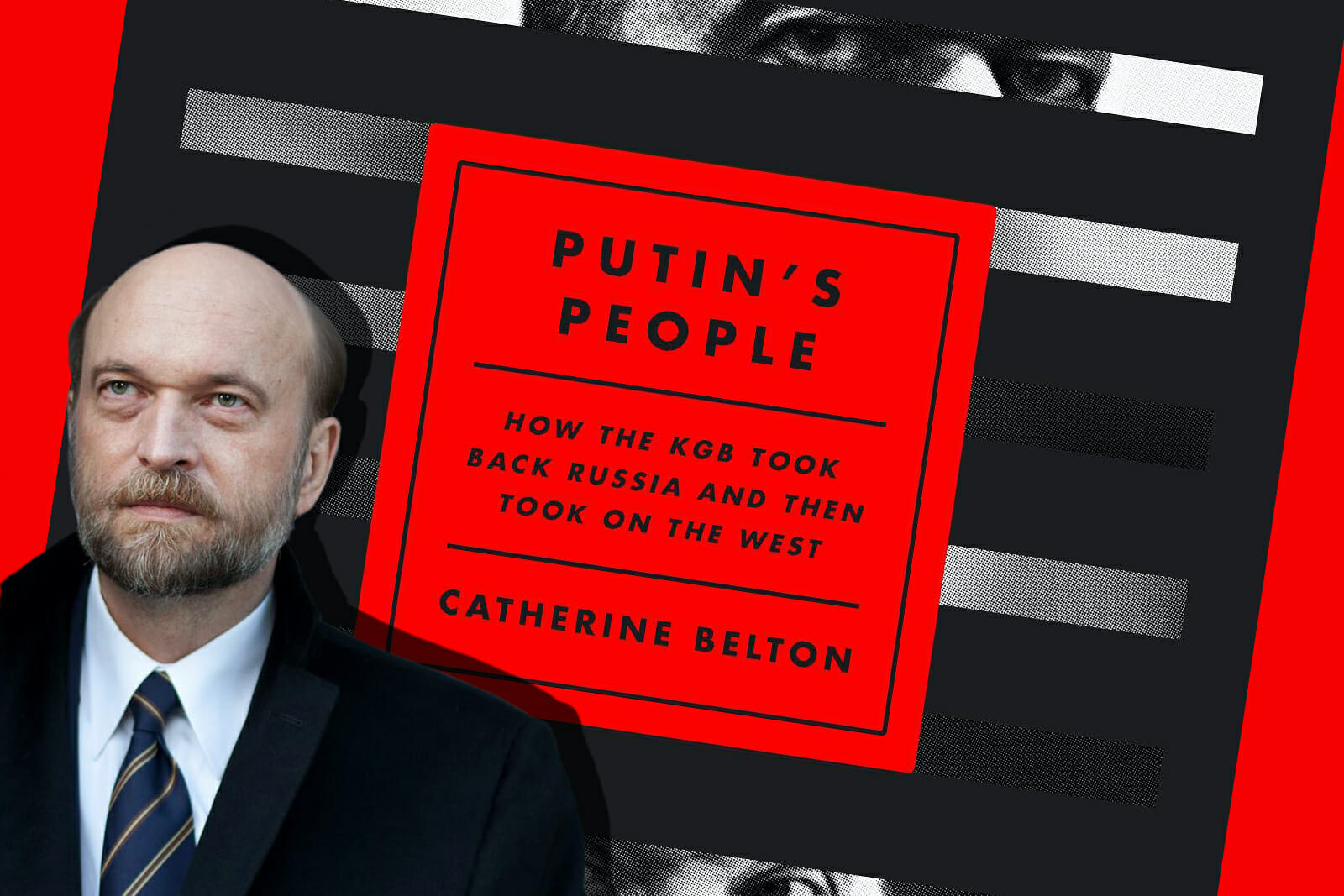
Do the Russian Billionaires Suing over ‘Putin’s People’ Have a Case?
Journalist Catherine Belton is being sued by three wealthy Russian oligarchs over the contents of her much-lauded book, Putin’s People: How the KGB Took Back Russia and Then Took On the West, and much of the commentariat is up in arms.
England has become the “censorship capital of the democratic world” according to Nick Cohen of the Observer. Meanwhile, the Financial Times wonders whether England is enabling “privatised censorship” by leaving its libel laws unreformed and available to those with significant means.
Amongst the chatter, an important question remains unasked: do any of the wealthy claimants – a group which includes Roman Abramovich, the owner of Chelsea Football Club – have a case? Is anyone willing to ask if Catherine Belton, a fine reporter, by the way, got some things wrong?
Not having a Murdoch-sized legal department behind me, I won’t tread on any of the book’s subject matter involving those suing Belton. Even with this constraint, one doesn’t have to read much of Putin’s People to see that Belton has been sold what looks to be at least one lie by a man named Sergei Pugachev, a former Kremlin insider who is interviewed in Putin’s People.
Pugachev’s story begins in the book’s prologue, in which Belton describes a dramatic visit to the Russian’s Chelsea mansion. It is late May 2015 and Pugachev – then partner to British-Russian socialite Alexandra Tolstoy – is in “fear for his physical safety” and “shell-shocked” after finding “suspicious” devices on his family’s vehicles the day before Belton’s interview. Belton relays how Pugachev was forced to call in the Metropolitan Police’s SO-15 counter-terrorism squad, who removed the devices and installed a type of panic box inside his residence.
Were the devices an attempt by the Putin regime to silence one of its critics? Pugachev certainly thought so, or at least wanted journalists like Belton to think so, later going so far as to brief the Daily Mirror of the plot to silence him, even providing photos of the devises found underneath his cars. (“Suspected homemade car bomb found by Russian tycoon who has accused Kremlin of trying to KILL him” screamed the headline.)
Only the devices weren’t explosives, according to court transcripts. They were harmless tracking devices placed by a corporate intelligence firm called Diligence. Nor, for that matter, were they found the day before Belton’s visit, as Pugachev claimed. According to the court transcripts, they were found long before Belton’s visit and prompted little concern, given Pugachev didn’t have them removed for weeks. It appears Pugachev staged a scene for Belton.
And why would a man like Pugachev have tracking devices placed on his vehicles? As Belton relays, and as the court evidence referenced above confirms, Pugachev is the subject of lengthy UK High Court proceedings, and had his assets frozen and passports seized as a part of it, barring him from foreign travel. Briefly, the Russian government is trying to recoup assets it says Pugachev purloined after his bank, Mezhprombank, failed in the aftermath of the 2008 financial crisis (during which the state had bailed out the bank). For his part, Pugachev denies the charges, accuses Vladimir Putin of trying to silence him, and is promising to reveal secrets about the Russian leadership.
By the time of the May 2015 Belton-Pugachev interview, the UK court had just denied Pugachev the opportunity to travel to France in support of an unrelated court action. Interestingly, during those mid-May hearings, Pugachev told the court he wasn’t a flight risk because he felt safer in the UK than in France – and would therefore return to the UK after the hearing. The court denied the request, arguing Pugachev could attend the French proceedings via videoconference and thereby respect his court-imposed travel ban. At no point during this mid-May 2015 hearing did Pugachev inform the court of the devices found under his vehicles.
Pugachev appears to have changed tack following his loss in court. A few days after Belton’s late-May interview, the court was forced to order Pugachev off his yacht – which he had boarded in Chatham, apparently en route for France. In response to this episode, the court deemed Pugachev a flight risk. Not that Pugachev was deterred by the court’s ruling. By the end of June 2015, Pugachev had successfully fled the UK in violation of his court order and was holed up in his luxury chateau in the south of France, where he gave an exclusive interview describing his flight from justice to Catherine Belton, who had traveled to the south of France for the next in her series of interviews with Pugachev for Putin’s People.
And just why did Pugachev want to get to France so badly? It turns out that France doesn’t have an extradition treaty with Russia, whereas Britain does. Pugachev was apparently worried enough about the result of the UK court proceedings to flee, even if, by doing so, it earned him a two-year jail sentence for contempt of court.
Putting everything in context, at the time of Pugachev’s UK legal case, it appears he was making one argument in private and another in public. To the court and its observers, everything was fine, and allowing him to travel to France for his unrelated court hearing was no risk at all, nor was living in London. To Belton, however, Pugachev was telling tales of dark forces being arrayed against him and his life being under constant threat, hence the desire to escape to France. What’s clear is that Pugachev wanted to get to France, likely to escape extradition, and needed a non-extradition-related motive to go. Enter the bombs and Belton, with whom he had clearly developed a rapport.
To be fair to Belton, at the time Pugachev sold her the explosives story she had few ways of independently verifying his information. But another outlet quickly figured out Pugachev’s explosives lie. And then there’s the February 2016 court ruling from Justice Vivien Rose, which came out well before Belton’s book and is an absolute marmalade-dropper.
Of Pugachev, Justice Rose wrote:
“Having heard Mr. Pugachev’s evidence, and read a large number of witness statements and affidavits made in the past by him or by his legal advisers on instruction, I have concluded that I cannot safely rely on any evidence he gave during the hearing…It is clear that his evidence on many topics changes depending on what he perceives to be the most useful version of events at any given time.”
Indeed, Justice Rose is absolutely scathing all the way through her judgment, including on Pugachev’s tortured explanation as to how he fled the United Kingdom following his bomb-scare interview with Belton:
“Mr. Pugachev’s evidence was that he left by first hailing a taxi on the street in central London, and being driven to a London airport. He was not able to recall which airport he left from except that it was an ordinary, commercial airport – though not Heathrow – rather than a private airport. He bought a ticket at the airport. He was unable to recall which airline he flew but he could remember that he flew to Paris. He could not remember what time of day this was except that it was still light – unsurprising since this took place in the middle of June. He was asked by Mr. Smith what travel document he used, and he said that he had with him only a colour photocopy of his passport. However, he said that no one asked him to show a travel document during the course of his journey…I find that evidence impossible to believe.”
None of the above court information is news to Belton, who even references Justice Rose’s “impossible to believe” line in her book’s opening pages. But for whatever reason, Belton chooses not to relay its importance to her readers or interrogate Pugachev on his claims. Justice Rose has just blown Pugachev’s “explosives” story to smithereens and it merits nary a mention, perhaps because it blows a giant hole into Pugachev’s credibility, while also reducing the perceived threat to Pugachev from Vladimir Putin, the book’s ultimate (and deserved) bad guy. To wit, we’re six years on from the “explosives” threat and Pugachev is still living and breathing just fine in southern France, blogging away to his heart’s content. Perhaps he isn’t, despite his claims, Public Enemy Number One to the Russian leadership.
The immediate question for Belton and her book is whether Pugachev’s lies are a habit, or limited to this one episode, whose full suite of lies weren’t even captured in full by the court evidence. Returning to that Daily Mirror story Pugachev briefed, the one replete with photos of the purported explosives, it, too, contains a number of fabrications exposed by the court transcripts, including the claim that Pugachev was in a UK “safehouse” at the time of publication. Pugachev was already in France when the article was published. The story also references a total of two devices being found, not the three the court was told about. It’s almost as if Pugachev couldn’t keep his story straight.
And then there’s the small matter of an apparent $350 million threat. In Belton’s book, Pugachev relays an episode where goons from the Russian Deposit Insurance Agency – the government body behind the legal action which prompted the UK asset freeze – were sent to the south of France to shake him down (so much for the apparent safety of France). Pugachev says they took him out on a boat and threatened to hurt his family, including cutting off his son’s finger, if he didn’t cough up $350 million of the disputed money.
Only when Pugachev told the same story to the BBC, the venue for the shakedown shifted to a restaurant in Nice, not a boat. The inconsistency in the retelling might mean something, it might mean absolutely nothing at all. Then again, if most of us were ever threatened by Russian goons for a sum of $350 million I’d like to think we would remember everything in microscopic detail, including where and how, exactly, it happened.
Whatever the case, given these multiple and very public warnings about Pugachev’s reliability, one hopes Belton did what she could to verify absolutely every single word out of his mouth given his centrality to her book (which is itself the first book to make Pugachev a central actor in the story of Putin). Especially with Pugachev making heretofore unheard claims like Vladimir Putin instructed a certain someone to buy a high-profile football club in London.
Because getting something like that wrong could prove to be very expensive, as Belton might be on the verge of finding out.

